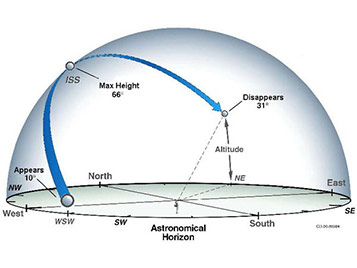|
|
|
|

|
Global Warming (1° Matters) Climate change is happening now. The United States and the world are warming, global sea level is rising, and some types of extreme weather events are becoming more frequent and more severe. These changes have already resulted in a wide range of impacts across every region of the country and many sectors of the economy. Today, America needs reliable scientific information about current and future changes, impacts, and effective response options. The U.S. Global Change Research Program (USGCRP) - which released the 3rd National Climate Assessment in May 2014 - is at the center of the Federal Government's efforts to fulfill this critical need. Scroll down to learn more. Coral Bleaching (1° Matters) Coral reefs are often referred to as the "rainforests of the sea" and they form some of the most diverse ecosystems on the Planet. Corals are tiny animals that belong to the same group as anemones and jellyfish. These tiny animals, called polyps, typically live in colonies and most of them have hard calcium carbonate skeleton. When the hard skeletons of the living and dead polyps in a colony cement together they form a coral reef. Coral Reefs mostly grow in shallow, tropical waters, but can also be found in deep and cold waters. Although they cover less than 1% of the ocean floor, they are a home to at least 25% of all marine species. Besides forming nurseries for an enormous variety of species, they also provide income for tourism and fisheries. Coral reefs are an important natural barrier against waves, hurricanes, typhoons and tsunamis. They are also becoming important in medicine, in treatments for diseases like cancer and HIV. Coral reefs are threatened by climate change, pollution, overfishing and sedimentation. Climate change is causing coral bleaching due to extreme temperatures and ocean acidification, which means more carbon dioxide from the atmosphere is absorbed into the ocean, making the ocean more acidic. Coral reef ecosystems are threatened all around the world. Many marine conservation programs have been developed to help conserve coral reefs. There are coral nurseries which help corals to grow safely in labs. One of the most effective ways to protect and restore coral reef ecosystems are Marine Protected Areas (MPA). They restrict human and damaging activity. Everybody can help to protect coral reefs: keep the beaches clean, fish smart, if you dive, don't touch or take corals, anchor in sandy areas away from corals, conserve water and drive less. Residual Carbon (1° Matters) The case for optimism on climate change One Degree Matters One Degree Can Change | NatGeo National Graphic on YouTube What happens at 2° Climate Control (1° Matters) Chasing Ice Dying Coral Reefs Documentary 2017 Teaser Chasing Coral FULL Chasing Coral (Netflix) Methane from Ocean Floor Equinox - Methane Burning on Ice | |
|
|
|
|





















